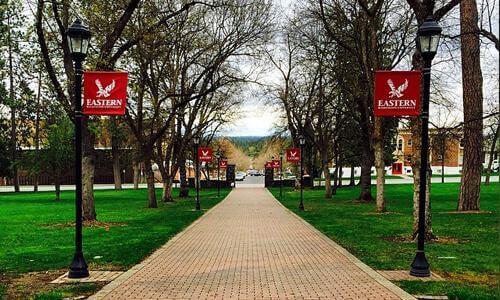Welcome!
The Department of English & Philosophy at Eastern Washington University is dedicated to student success through programs designed to develop skills in critical thinking, communication, collaboration, and cultural understanding.
Each of our programs gives students the opportunity to strengthen writing skills and develop a background in critical analysis, the structure of language, and literary history. All of our undergraduate programs lead to a Bachelor of Arts degree.
Whichever program you choose, you will have the opportunity to work with knowledgeable faculty, receive hands-on experience, and collaborate with a supportive community of fellow students. These opportunities will prepare you for successful future careers or graduate studies in a variety of fields.


